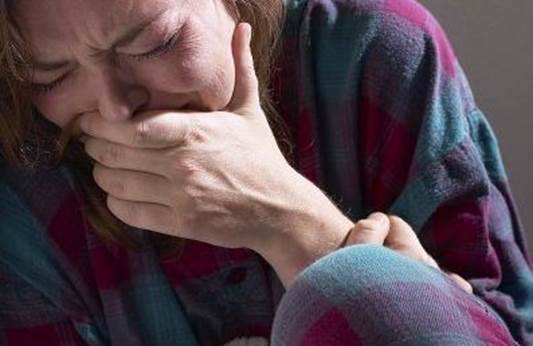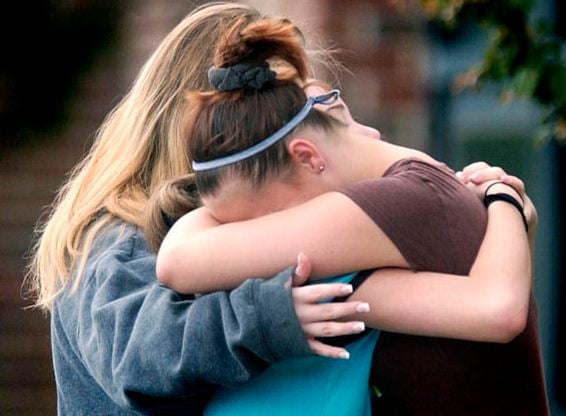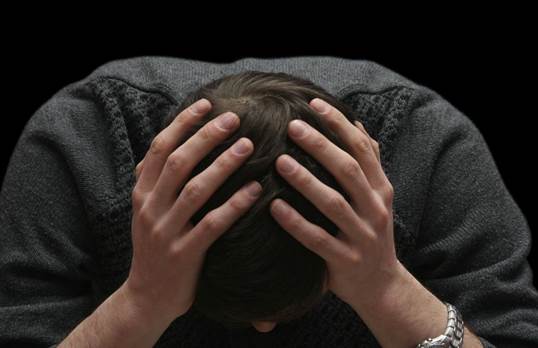Grief is a natural part of life, but the experience can be
different for each of us
Most of us will experience grief at some point. The pain and
emotional turmoil that goes hand-in-hand with the loss of someone we care
deeply about makes it the most difficult human experience. And while there is
no right or wrong way to tackle grief, there are many ways a person can help
themselves, and be helped, on the road to recovery.
You don't always go through all the stages of grief, and that’s okay.
In 1969, psychiatrist Elisabeth Kübler-Ross wrote her
groundbreaking book On Death and Dying(available from Amazon), which
established the five stages of grief – denial, anger, bargaining, depression
and acceptance. According to life coach and counsellor Julie Parker, however,
not everyone goes through these stages the same way. “The reason we experience
grief differently is as varied as people and relationships,” she explains. “It
depends on many factors; if a death is sudden or expected, if it’s a child or
an elderly person, or if they died from natural causes or from a violent
crime.”
You don’t always experience each stage of grief, or in the
same order as someone else. “If a person has been caring for a loved one who’s
been ill for a long time, they may not experience denial or anger at all
because they have already come to terms with the knowledge that someone close
to them is going to die,” says Parker. “Instead, they may go straight to an
acceptance phase.”
Grief isn’t just about losing a loved one.
We grieve for many reasons, which can include the loss of a
relationship, or the loss of a way of life. “If someone loses a limb, they may
grieve significantly for that limb, or if they can no longer walk, or do a
particular type of activity they previously could,” says Parker.

We grieve for many
reasons, which can include the loss of a relationship, or the loss of a way of
life.
It’s also no less devastating than the loss of a loved one.
“If you lose a beloved pet, the grief can be incredibly difficult to live
with,” she says. “The same feelings can also be experienced by someone who is
betrayed in a relationship, fired from a job, or any other experience where
they lose something close and important to them.”
Grief isn’t measurable, so comparisons should be avoided.
“When someone is grieving, no matter why, we should simply love and support
them,” says Parker. “Don’t hurry them through the process, or make them feel
that what they are grieving about isn’t important.”
Grief and depression are not the same thing.
Grief and depression can feel the same, says counselling
psychologist Dr. Annie Cantwell-Bartl, but there are two key differences. “The
first is that depression tends to be all-consuming, whereas the feelings of
grief come and go, particularly as time passes,” she says. “The second
difference is that the feelings of grief are directed towards the person who
has died, or what has been lost, while the feelings of sorrow in depression are
likely to be non-specific.”

Grief and
depression can feel the same, says counselling psychologist Dr. Annie
Cantwell-Bartl, but there are two key differences.
Depression is often treated with medication and counselling,
while grieving people mostly need support and time. “Sometimes they can benefit
from help by a professional skilled in grief who understands the journey,” says
Cantwell-Bartl. “Grieving people sometimes wonder if they’re going mad, because
their world is turned upside down. Someone skilled in grief counselling can
offer reassurance.”
Men and women may grieve differently.
Just as people experience grief differently, the way men and
women grieve can be related to personality, style, cultural experiences and the
expectations of men in society, says Cantwell-Bartl. “Generally, many men are
more concerned with restoration of life after someone is lost, and women are
more focused upon feelings and talking about them,” she says. Both sexes need
to address each aspect to recover well.
“Sometimes men experience delayed grief responses as they
feel there is no one who wants to listen to their experiences, or they support
their partner and sidestep their own grieving,” says Cantwell-Bartl. “However,
these are stereotypes; some women are more focused upon restoration than grief
work and vice versa with men.”

Sometimes men
experience delayed grief responses as they feel there is no one who wants to
listen to their experiences, or they support their partner and sidestep their
own grieving